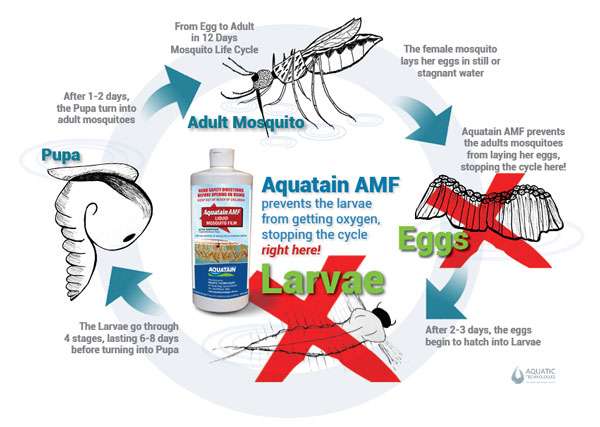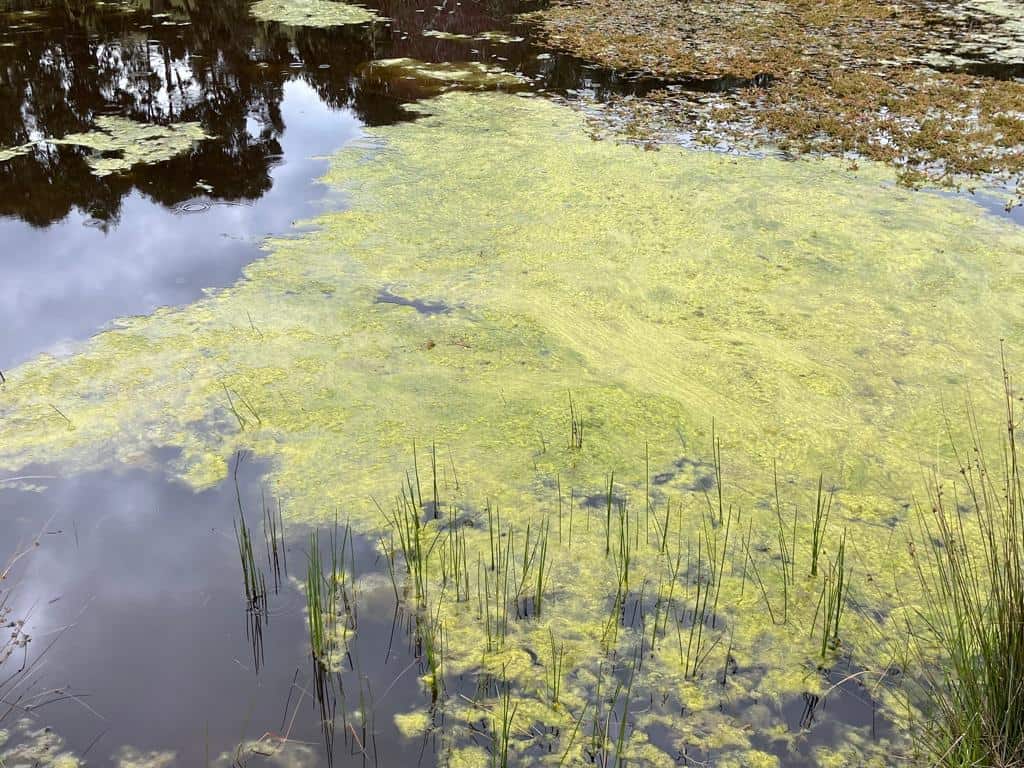
Preventing mosquitoes breeding in your yard
When you are dealing with a mosquito problem? Here are some ideas on how to reduce mosquitos in your yard:
Mosquitoes like to find still water as these offer good breeding sites. They like to lay their eggs and the quickest way to deal with mosquitoes is to prevent these eggs from being laid.
How to manage breeding mosquitoes?
Looking at their breeding cycle.

Egg stage
The life cycle of your average mosquito is about 12 days, from egg to adult.
The females search for a suitable spot to put their eggs. They like forks in trees, or manmade reservoirs like old (car) tyres, empty bottles, vases, flower pot dishes. The eggs can resist dry periods of time and will only start to hatch after rain or flooding.
Larval stage
After 2-3 days the eggs start to hatch and then enter 4 larvae stages. The4larvae stages will last from 6 to 8 days. During this time, the larvae will hang from the water surface and breathe via a ‘snorkel’. After surviving the larvae stage they will turn into a pupa.
Pupa stage
The pupa stage is short and after 1 to 2 days the pupa will turn into an adult mosquito.
Adult stage
The male and female adult life stage is different. After a male mosquito has successfully mated, he will only live for another three to five days. Males are recognised by their large antennae and, males do not bite humans. Males feed on fruit juices and plant nectar. Female mosquitoes require a blood meal for egg development, so only female mosquitoes bite humans.
After a female has been fertilized once by a male, she is able to produce about 300 eggs during her lifetime, which can be one to two months. During this time she will lay anywhere between 100 – 300 eggs.
Stopping Mosquitoes from taking over your garden
Once you understand the mosquito breeding cycle, how to prevent them from becoming a nuisance in your garden.
Mosquito breeding hubs:
Mosquitoes only need a very small amount of still water. Mosquito breeding grounds can include:
- Flower pots
- Ponds, marshes and bogs
- Bird baths
- Puddles
- Rainwater barrels
- Empty tires or debris in the yard – they can fill up with water after a rain
- Ditches
- Untended yards
- Heavy shaded areas and long grasses
Any place with still water or heavy vegetation can be a breeding ground, they thrive after flooding because of all the still water. Their eggs are so small, mosquitoes can use a water bottle cap filled with water to lay eggs.
How to remove mosquito breeding grounds
- A running birdbath. Instead of a still bird bath, make it a feature of your garden by adding some running water, subtle enough as to not scare the birds away!
- Eliminate debris and hiding spots on your property. Regular garden maintenance and frequent cleaning of any rubbish or debris can help reduce any potential mosquito breeding sites.
- Take a close look at your garden. Garden ornaments, flowerpots, and even paving stones can collect water and become a breeding ground for mosquitoes. For potted plants, encourage good drainage. This will improve the health of your plants, while also preventing mosquitoes. For garden ornaments, look for hollow pieces with small drilled holes to allow water to drain away.




